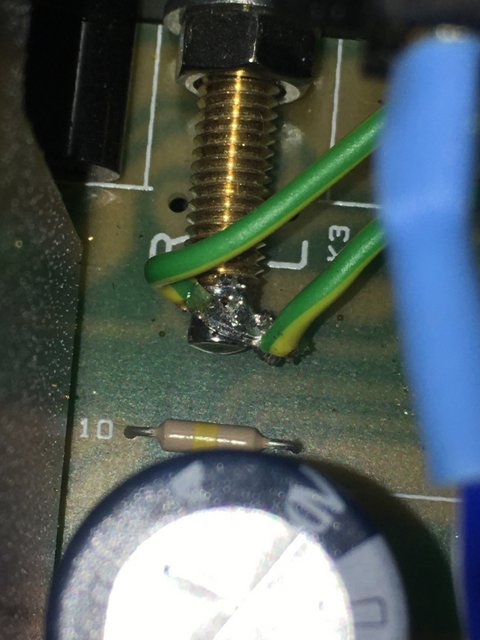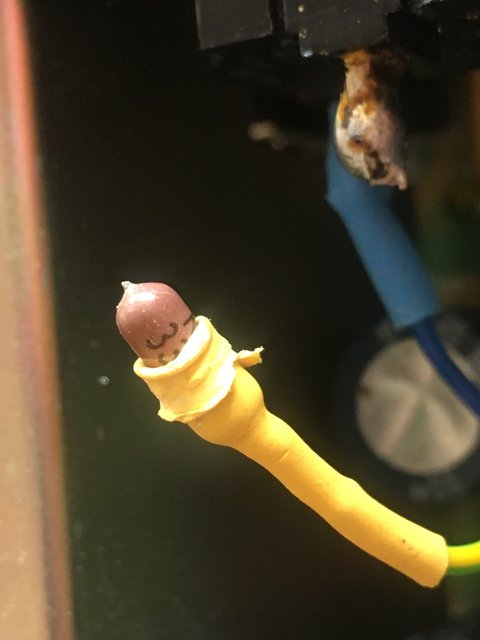Hello!
My tube phono is picking up interference most probably from the air. It's EAR yoshino 834p, using three 12AX7 tubes. It's sounds pretty amazing and I willing to try everything to keep it.
Here is a sample of the sound -
The rest of the setup is ARC LS16 mk1, Classe CA200, Chord Qutest, Technics SL1200 with Nagaoka MP200, Tannoys D700
I have tried many things already -
- grounding the phono to the preamp, grounding the phono to a socket, covering the phono with a pot, saucepan - no change
-plugging the phono preamp alone into an integrated (Bryston B60) and removing other stuff.
- the important part is I have taken the phono to two other places and it worked perfectly fine, even with the cheapes cables.
- I haven't had any problems with previous phono preamps which were all solid state.
- if I unplug the turntable the signal fades to about 50%
- if I try different RCA cables, there's not much of a change even they are shielded (audioquest mackenzie, supra etc.)
- the signal also fades when I grab the cables. Also works if I grab or squeeze the output cables.
- I have tried to wrap the cables into aluminum foil, I have noticed a difference but it's still unlistenable.
- I have tried pluging in a 5 meters long RCA output cable and walked with the phono preamp around the room. It's simply like carrying an antenna. Placing the phono on the floor helps but again, the interference is still present.
Do you have any suggestions what else to try? Is there some kind of grounding that would prevent the phono preamp acting like an antenna?
I haven't tried a new set of tubes yet.
I think the 12AX7 are simply too sensitive to all the mess in the air. The ARC LS16 preamp was catching the same signal very quietly when I took it's cover of.
Thanks!
Filip



